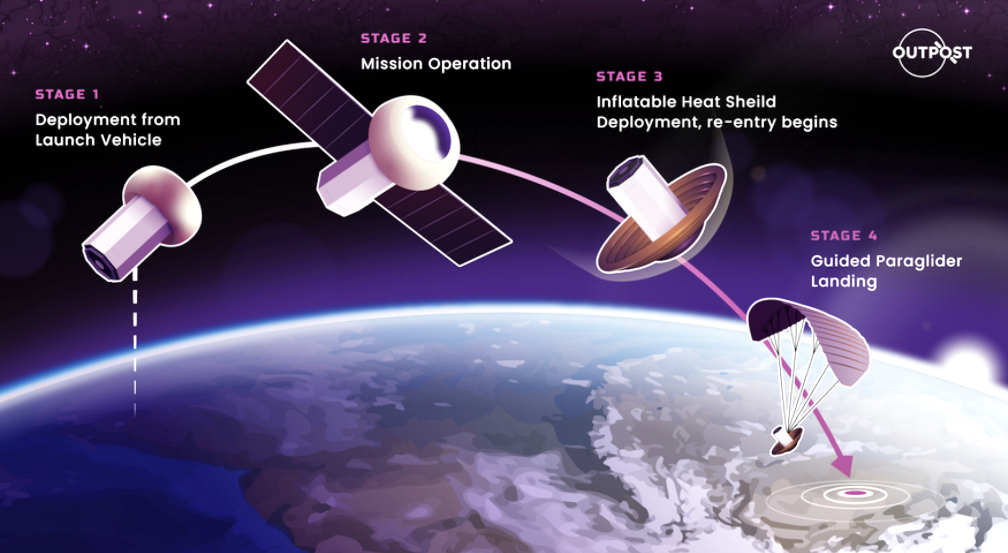
Outpost has launched as a sustainable space firm that is working to redefine what it means to be a space company with sustainability at its core. The company is starting by first solving one of the biggest problems — creating reusable satellites and enabling precision Earth Return of orbital payloads — and designing and manufacturing reusable satellites.
Today, much of the work in space is inefficient, wasteful and expensive. Outpost is radically reducing the cost and time of working in space, which unlocks an iterative, sustainable space economy for the future.
The company believes the future of space (and Earth) requires a focus on sustainability and it’s important that this industry develop from the start with sustainability at its core. All space companies must ultimately become sustainable space companies.
Outpost’s future in space must be built with sustainability at its core — efficient, precise Earth Return is essential for the development of new industries in space and the improvement of life on Earth. Outpost allows companies to iterate on technical developments in space and ensure mission success.
The company’s platform is able to deliver payloads to space and Outpost has two-stage re-entry to bring satellites home. The platform is a 200 kg. spacecraft and, to the best of the company’s knowledge, no spacecraft of that small size has attained orbit and then returned home. Importantly, this also allows for more precise deployment of satellites rather than them having to be dropped off at the same port.
Outpost can provide local delivery to where satellites need to be the platform enables local delivery of orbital payloads and their return to Earth with pinpoint landing accuracy. The immediate opportunity for Outpost is helping rethink how satellites are deployed and used, and re-usable satellites will unlock many new opportunities for research and sustainability. Even being able to return damaged satellites so they can be repaired and reflown will be a major advancement in the industry.
Outpost was founded in 2021 by Jason Dunn, Michael Vergalla, and Aaron Kemmer. Jason and Aaron were both previously founders of Made In Space, which was acquired in 2020 by Redwire. Michael (CTO) is an engineer, environmentalist, and adventurer. He has previously held positions at Moon Express, SpinLaunch and Airbus A3. He is also the founder of Free Flight Research Lab (FFRL) is a Non-Profit Research Institute developed to create positive global impact through applications of technology for advancing weather science & forecasting; conservation & resource preservation; and aerospace science, human factors and free flight safety.
